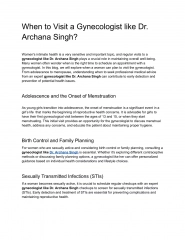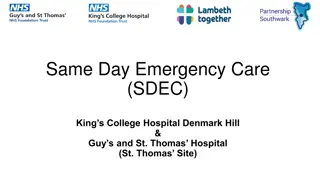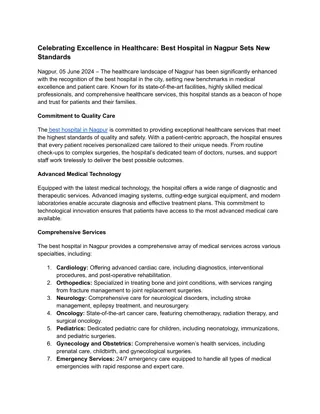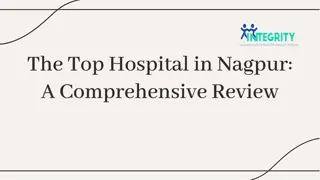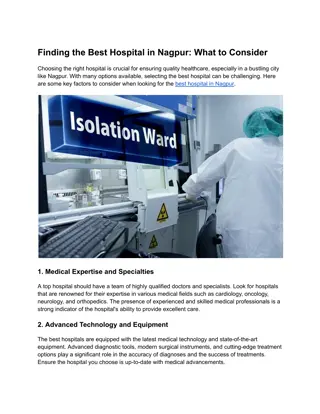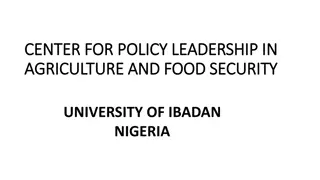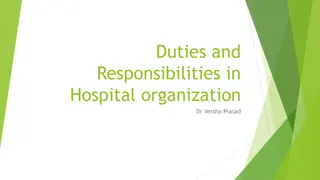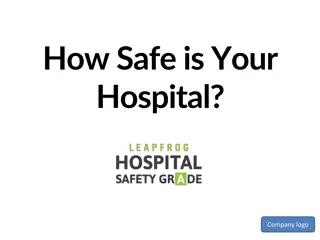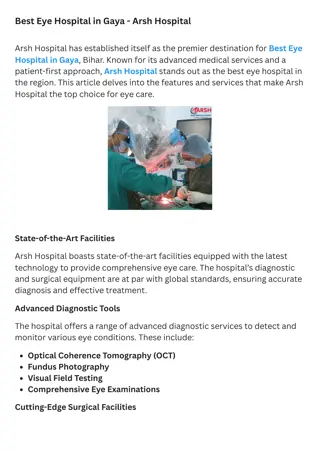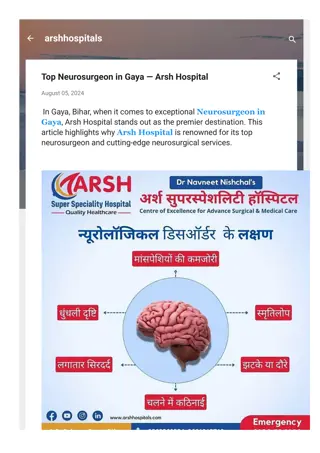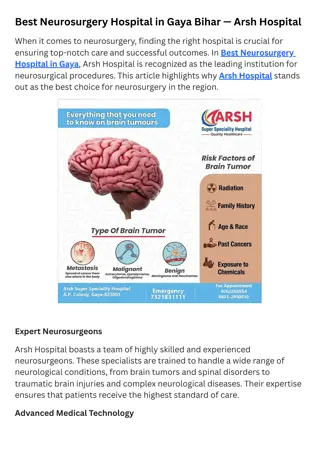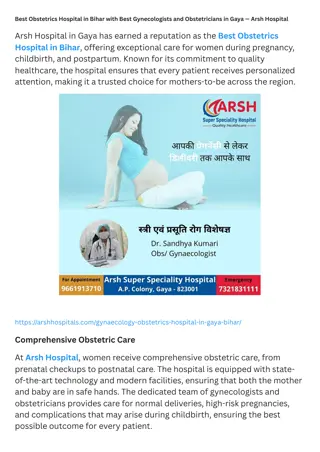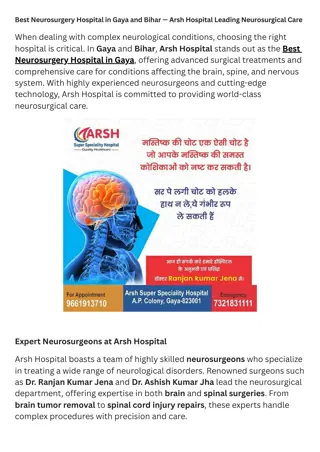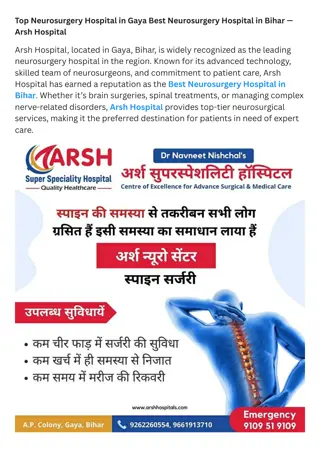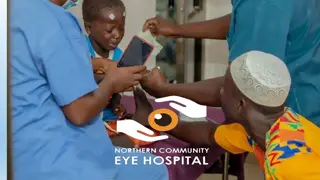
Palliative Care Services for Adult Cancer Patients in Ibadan, Nigeria
Explore the provision of palliative care services for adult cancer patients by the Hospice and Palliative Care Unit at University College Hospital, Ibadan. Learn about the challenges faced, review service outcomes, and suggest a way forward based on a study conducted in Nigeria.
Download Presentation

Please find below an Image/Link to download the presentation.
The content on the website is provided AS IS for your information and personal use only. It may not be sold, licensed, or shared on other websites without obtaining consent from the author. If you encounter any issues during the download, it is possible that the publisher has removed the file from their server.
You are allowed to download the files provided on this website for personal or commercial use, subject to the condition that they are used lawfully. All files are the property of their respective owners.
The content on the website is provided AS IS for your information and personal use only. It may not be sold, licensed, or shared on other websites without obtaining consent from the author.
E N D
Presentation Transcript
PALLIATIVE CARE- 2015, ORLANDO SUPPORTING ADULT CANCER PATIENTS IN IBADAN, NIGERIA. PROF. OLAITAN A SOYANNWO , DR. OLADAYO AIKOMO & OLOLADE MABOREJE RN, BSc HOSPICE & PALLIATIVE CARE UNIT, UNIVERSITY COLLEGE HOSPITAL, IBADAN & CENTRE FOR PALLIATIVE CARE, NIGERIA
Greetings from---- Nigeria, University College Hospital, Ibadan & Centre for Palliative Care, Nigeria team 2
Nigeria Largest country in Africa Population 170 million 250 cultural tribes 36 States + FCT Religion : Islam(50.5%). Christianity(48.2%), Others(1.4%). Low MDGs despite oil wealth! Health agenda at Federal and State levels Emphasis on communicable disease prevention/treatment NCDs and Pain issues emerging area of interest Bulk of health funding is borne by households (out of pocket payment) SOYANNWO O A 2015 3
Cancer One of the leading causes of adult death. Recent new cases of cancer diagnosed in Africa in 2008 and Nigeria in 2010 is 715,000 and 500,000 respectively. [1] [1] Jemal A, Bray F, Forman D, O Brien M. Ferlay J, Center M, Parkin M. Cancer burden in Africa and opportunities for prevention. Cancer. 2012; 118(18):4372-4384 SOYANNWO O A 2015 4
Palliative care in Nigeria Advocacy commenced in 1991 Few trained health professionals (mainly at Hospice Africa Uganda) 8 functional palliative care centres in tertiary hospitals No stand alone Hospice Hospice and Palliative care association ( HPCAN) inaugurated in 2007 Opioid availability and accessibility problematic SOYANNWO O A 2015 5
Day care Hospice and Palliative care centre, UCH, Ibadan Established in collaboration with Centre for Palliative Care, Nigeria (CPCN), an NGO in 2007. Structured services commenced in 2008. Team of trained palliative care staff - doctors, nurses, social worker, admin staff and volunteers SOYANNWO O A 2015 6
STUDY OBJECTIVES To review palliative care services offered to caner patients by the Hospice and Palliative care Unit of the University College Hospital (UCH), Ibadan To identify challenges Review outcome of service Proffer way forward SOYANNWO O A 2015 7
Methodology Retrospective study of patients seen over a period of one year (January December 2013) Information retrieved from case files include bio-data, stage of cancer, presenting complaints, palliative care issues identified, services rendered, days on programme, outcome and challenges encountered. Data shown in a simple descriptive format. SOYANNWO O A 2015 8
Results Total number of patients seen at the hospice during study period 189. Adult cancer patients = 121 ( 64%) Stage of disease Advanced (96.7% stage IV) Male : Female = 1:1.8 Religion = Muslim 67(55%) Christian 54(45%) Age range = 21-91years( Mean age= 59 (SD+/-15) Days on programme ranged from 5-224 days. SOYANNWO O A 2015 9
Results AGE DISTRIBUTION Age( Years) N % 18-35 11 9.1 36-53 24 19.8 54-71 78 64.5 72-89 5 4.1 >90 3 2.5 Total 121 100.0 SOYANNWO O A 2015 10
Diagnosis Diagnosis N % Breast carcinoma 29 23.9 Gastrointestinal cancers 24 19.8 Prostatic carcinoma 17 14.0 Cervical carcinoma 14 11.6 Other gynae-oncological carcinoma 12 9.9 Head/neck cancers 12 9.9 Blood cancers 4 3.3 Lung cancers 4 3.3 Other urological cancers 3 2.5 Osteosarcoma 2 1.7 Peripheral nerve sheath tumor 1 0.8 Total 121 100.0 11
Palliative care issues identified Palliative care issues Number of patients % (n =121) Psychosocial + Pain 79 65.3 Psychosocial + spiritual + Pain 53 43.8 Spiritual + Pain 37 30.6 Unconscious 12 9.9 SOYANNWO O A 2015 12
PAIN : 89/121(73.6%). Number of pain site (s) Pain score (NRS) Number of pain site(s) N % Pain score N % 1 70 79 1-3 0 0 2 12 13 4-7 62 70 >3 7 8 8-10 27 30 Total 89 100 Total 89 100 SOYANNWO O A 2015 13
Other symptoms Symptoms Number of patients % (n= 121) Weight loss and anorexia 86 71.07 Nausea ,vomiting and dry mouth 65 53.7 Weight loss and cough 38 31.4 Nausea and anorexia 24 19.8 SOYANNWO O A 2015 14
Pain and other symptoms control 80 (90%) had their pain controlled. MEDICATIONS OTHER MODES OF TREATMENT N % Modes of treatment N % Medications Chemo -radiotherapy 42 35 61 Strong opioid+ NSAIDs + adjuvant 54 Radiotherapy 27 22 21 Weak opioids + adjuvant 19 Chemotherapy + surgery 27 22 11 NSAID + non-opioid 10 Chemotherapy 12 10 Surgery + chemo- radiotherapy 10 8 7 Weak opioids + NSAID 6 Hormonal 3 3 100 Total 89 Total 121 100 SOYANNWO O A 2015 15
Other interventions Financial Support (through the NGO, CPCN) Comfort packs, subsidy of the cost of medications(morphine). Psychotherapy sessions Involvement of occupational therapist, physiotherapist and social workers. Spiritual care (hospital chaplaincy committee) Family conferences SOYANNWO O A 2015 16
Spiritual care, herbal and traditional remedies also favored by patients SOYANNWO O A 2015 17
Outcome Outcome N % Dead 82 68 Alive 24 20 Lost to contact 15 12 Total 121 100 SOYANNWO O A 2015 18
Discussion Late presentation/referral Most presented with moderate to severe pain. Morphine- the only strong opioid available Less spiritual issues due to role of religious beliefs. Financial support Centre for Palliative Care, Nigeria (NGO) collaboration SOYANNWO O A 2015 19
Challenges Late referrals Poverty and severe financial constraint Interrupted supply of strong opioid/restricted opioid switch. Myth concerning use of oral morphine Limitation of service to 20km radius Poor knowledge about palliative care public, policy makers, health professionals SOYANNWO O A 2015 20
Conclusion Palliative care service was found to be beneficial to the patients enrolled on the programme and their families Pain is a major problem and availability of opioid analgesics is essential for better management. Such care can be improved with adequate collaboration and partnerships. Improved education and policy will enhance extension to community level. SOYANNWO O A 2015 21
From our team - Thank you for listening. SOYANNWO O A 2015 22

